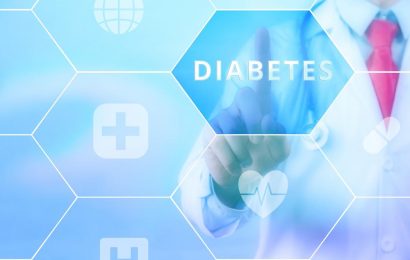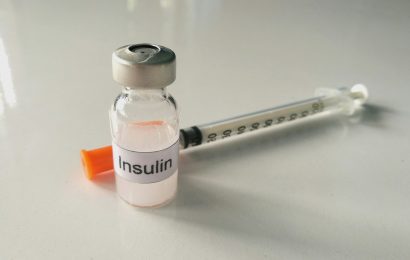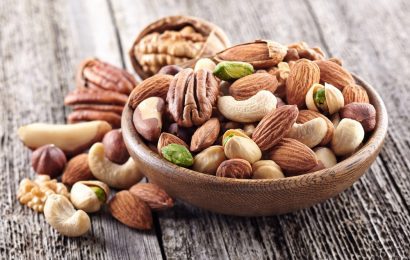I’m not much of a dietary supplements guy. But months of wildly irregular heartbeats will get people to try new things. A friend told me coenzyme Q10 (CoQ10) had fixed her heart rhythm.
Doctors hadn’t been able to diagnose my premature beats, in spite of heart scans and stress tests. I figured CoQ10, also called “ubiquinone,” was worth checking out. But first of all, I wondered what a “coenzyme” is. I’ve never heard the term anywhere except with “Q10” after it.
About.com defines coenzyme as “A substance that works with an enzyme to initiate or aid the function of the enzyme.” Coenzymes can’t do anything by themselves; they just work with enzymes.
So what is an enzyme? Various sites define enzymes as “proteins that act as catalysts.” Catalysts are substances that cause chemical reactions to occur. Since almost everything in the body requires chemical reactions, enzymes are crucial to health. And if “coenzymes” help enzymes work, we need them too. All the B vitamins are considered coenzymes.
Coenzyme Q10 helps the chemical reactions that produce energy in the body. Since everything we do requires energy, our bodies couldn’t do anything at all without CoQ10. We’d be sort of dead.
We usually think of glucose as the body’s fuel, but the real fuel is called ATP or adenosine triphosphate. Glucose is used to make ATP. This process requires CoQ10.
Of all our bodies’ parts, the heart is one of the hardest working, so it needs a lot of energy. That’s why CoQ10 problems often show up as heart problems. When Amy Campbell wrote about CoQ10 in 2009, she pointed out that CoQ10 was being studied in congestive heat failure and heart attack recovery. Low CoQ10 levels also may be implicated in gum disease, high blood pressure, and a large range of other conditions. See a list of them here.
CoQ10 is not a vitamin. Vitamins are compounds we have to get from our food, because our bodies don’t make them. Our bodies do produce CoQ10, so in theory, we don’t have to get it from food. That’s good, because the only foods that are high in Q10 are oily fish and organ meats (like liver). Other foods have small amounts of it, but it’s mostly up to us to produce our own.
A couple of years ago, over-the-counter CoQ10 was usually sold in 30-milligram (mg) doses. Doses are going up; you can now buy 300-mg pills. Some people are taking as much as 2400 mg day, prescribed by doctors, usually for heart disease or “mitochondrial disease.”
Mitochondria are the little energy centers in cells where food is turned into ATP. Lack of CoQ10 can stop mitochondria from producing ATP. If they’re not producing enough, many diseases can result. Diabetes may be one of these diseases.
Why does CoQ10 go low? Our bodies produce most of it in a process called “biosynthesis.” According to Wikipedia, “Biosynthesis requires at least 12 genes, and mutations in them cause CoQ10 deficiency.”
Other genetic changes can lower CoQ10 production. So can statin drugs and beta blockers (used for high blood pressure). Interestingly, CoQ10 is thought to lower cholesterol and blood pressure. Many doctors advise CoQ10 for their patients on statins.
Sometimes there is increased demand for energy (ATP), which can use up the supply of CoQ10. Wikipedia says, “Some chronic disease conditions, like cancer and heart disease, are thought to reduce biosynthesis and increase the demand for CoQ10 in the body, but there are no definite data to support these claims.”
Other people may just not be getting enough in their diet. I wonder why CoQ10 deficiencies should be coming up at this time in history.
Maybe it’s the organ meats. In the nature film Never Cry Wolf, Farley Mowatt, a naturalist, was trying to prove that Arctic wolves lived primarily on mice, not on caribou. So he tried to live on captured mice himself. He got very sick. But then he realized that wolves ate the whole mouse, while he was cleaning out their icky organs and just eating the muscular haunches.
When he started eating the mice whole, he felt fine. He had been missing the CoQ10 (and probably other things) that were mainly in the organs, not in the muscles. Most people long ago stopped eating organ meats, which our primitive ancestors ate every chance they could get.
So that change could be part of the problem. Dr. Terry Wahls, author of Minding My Mitochondria, healed her progressive multiple sclerosis (MS), by eating organ meats (and huge quantities of vegetables.) She credits the CoQ10 and other micronutrients in her diet for getting her out of her wheelchair and onto a mountain bike. Wahls says just taking CoQ10 can’t replace vegetables and organ meats, because there are other nutrients in foods that haven’t been discovered yet.
But it’s a start. I like vegetables, but I think I’ll get my CoQ10 from supplements. I’m taking 300 mg a day, and my heart palpitations have stopped. If I miss a few days, they come back. Although it’s expensive, I might increase my dose more and see if any of my MS symptoms improve.
Have any of our readers tried CoQ10? I’d like to hear about your experience.




